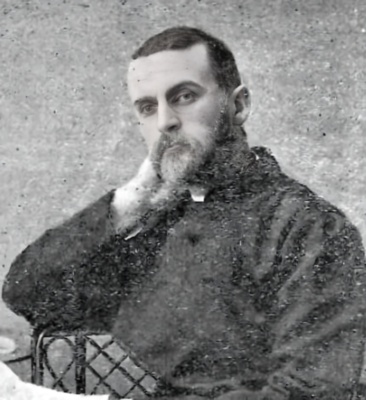Richard Nugent Kelly
Individual, P103
Biography
The Reverend Canon Richard Charles Nugent KellyRector of St. John's Church 1891-1896
Richard Charles Nugent Kelly (1858 - 1936) was born in 1858 in Birkenhead, England to Robert George Kelly and Mary Walker. He married Emma Louisa Edith Cremer (1858-1924) at Hampton Hill, England in 1882 and died in 1936 at Hornsby NSW. He was buried in Goulburn General Cemetery. It appears that he studied at Oxford. For someone who achieved so much during his ministry at St. John’s and elsewhere, little enough information has come to hand about Revd. Canon Nugent Kelly. He is mentioned in relation to the history of St. Aidan’s Church, East Launceston, which was originally a missionary endeavour of St. John’s Church. His influence is also noted in the founding of St. Oswald’s Church, Trevallyn, and the beginnings of the Mission House – at the time operating in the former Queen’s Head Hotel in Wellington St.
The Australian Christian Church Histories database also lists service at Devonport 1890-91, St. Andrew’s Carrick 1908-1911 and again 1919-1923. He is listed as warden of St Wilfrid’s Theological College, Bishopsbourne, 1904-1908, a position which also made him incumbent of Holy Trinity, Cressy.
Nugent Kelly left St. John’s in 1896 for All Saints Bendigo until 1901, being recognised at his farewell for his effective financial management. See Bendigo Advertiser article.
He returned to Tasmania to become rector of Holy Trinity, North Hobart, from Sept. 1911 to April 1916, and is listed as an assistant priest at Holy Trinity Launceston in 1916 – possibly as a short-term locum.
Kelly was certainly the founding editor of Parish Messenger and Church Messenger during his time at St. John’s.
That Kelly was highly regarded in his time in Launceston can be gauged from an article published in Church Messenger March 1897 p.129 – the following year, accompanying the photo reproduced in this biographical note;
Straight as a poplar; firm as a rock even to the loss of ease and esteem of men, when the path of duty was clear; tender as a little child to an enemy, if he had one; with a spice of democracy in his nature which causes men to write such books as “Merrie England” or “Alton Lock ;” it was no wonder his brother clergy, in saying farewell, spoke of him in their address as a “type of the good old English priest,” and his people at S. John’s gave him a substantial ” send-off ” of 50 sovereigns and a hearty “good-by” at a special social.
Mistakes! Save us from the man who never makes them ! Yes, of policy perhaps, but never of charity. The priest of yesterday sits at ease amidst his fashionable congregation, or passes by on the other side, fearful of mistakes in moving out of the trodden path, while the worker of to-day rushes among God’s forsaken poor, bleeding and dying on the wayside, and places them on “the world’s great altar stairs which slope through darkness up to God,” and S. John’s mission becomes a fact! We are glad to hear of the hearty welcome he received in Bendigo, and regret his loss to this Diocese. To the readers of the Messenger, which he founded, we present his picture. [as published on this page]
